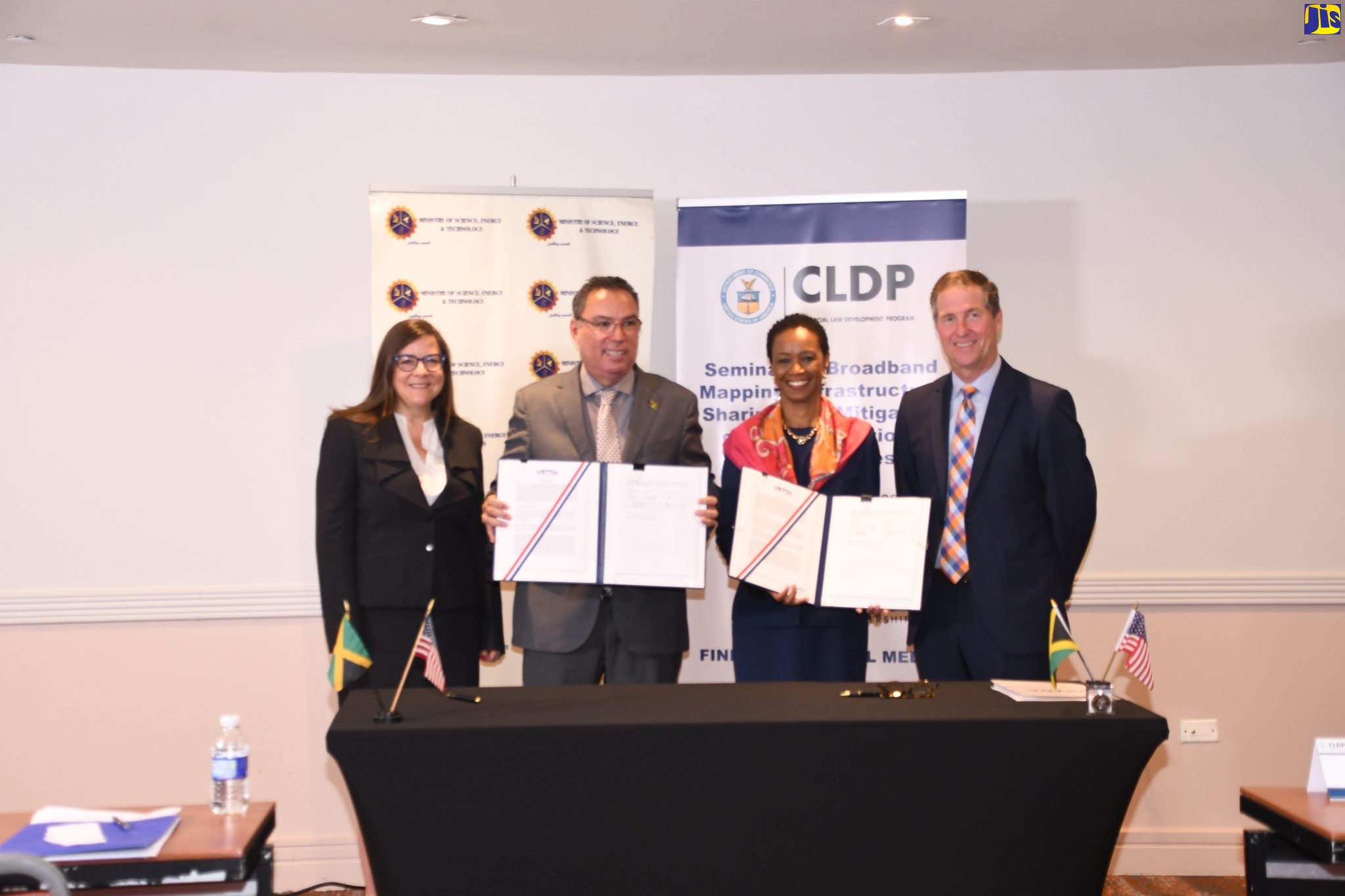USTDA Grant to Help Mitigate Effects of Climate Change
By: , September 8, 2022The Full Story
Director, United States Trade and Development Agency (USTDA), Enoh T. Ebong, says a technical assistance grant awarded to Jamaica will help mitigate the effects of climate change.
Ms. Ebong, who spoke at the signing ceremony for the USTDA’s Emergency Communication Network Technical Assistance Programme, at the Hilton Rose Hall, St. James, on September 7, said that “now more than ever” there is an urgent need to cooperate on climate, adding that this has become a foreign policy priority of the United States.
Jamaica’s emergency communication system should be significantly boosted through the grant agreement with the USTDA.
“I became familiar with the many challenges facing the Caribbean from my late mother, who was from St. Vincent. Life was often disrupted there due to the threat of hurricanes and volcanic eruptions,” the USTDA Director explained.
“I grew up understanding that resilient infrastructure is vitally important for island economies that must grapple with these events. Perhaps it is little surprise then, that I pursued a career at an agency like USTDA, which has an important role to play in addressing the existential threat that we are facing from climate change,” she added.
Ms. Ebong further pointed out that in dozens of emerging economies around the world, the USTDA has worked with leaders to support the deployment of innovative technologies “that can address these shared challenges,” adding that the Agency’s role within the US government is a unique one.
“We are a foreign assistance agency that works in collaboration with US industry to advance the development of high-quality, sustainable infrastructure in emerging economies,” she noted.
“We provide grant-based funding for technical assistance, feasibility studies, and pilot projects. These are the essential tools for structuring infrastructure deals that can be financed, implemented, and sustained. We also leverage the expertise that US industry has to offer, and we engage early to help our partners define the technology and design options for their projects,” the Director continued.
She further explained that the USTDA also supports partnership-building events to share knowledge, build relationships, and find solutions for the infrastructure challenges that “our partners face”, noting that the Agency prioritises digital infrastructure activities that increase access to inclusive, secure, and sustainable connectivity for underserved communities.
In addition, “we are also focused” on deploying digital technology to transform the capabilities and efficiency of other critical economic sectors, including clean energy, transportation, and healthcare infrastructure, the Director said.
“Above all else, digital infrastructure is a priority for us because it has the potential to mitigate existential threats such as natural disasters and climate change, which have a disproportionate impact on the Caribbean,” Ms. Ebong noted.
“The Digital Connectivity and Cybersecurity Partnership (DCCP) is a priority across the US government. All of us embrace the opportunity to support the development of digital infrastructure that is open and secure and promotes inclusive economic growth. And we must consider the mitigating impact that quality digital infrastructure can have. In fact, this has become [also] a foreign policy priority of the United States,” she said.
Ms. Ebong argued that the priority could not be more telling and pronounced than when US President Joe Biden and the G-7 leaders in June launched a new initiative called the Partnership for Global Infrastructure and Investment, to close the infrastructure gap in emerging economies by mobilising hundreds of billions of dollars for sectors, including climate and digital.
She added that this was further bolstered at the most recent Summit of the Americas, where Vice President, Kamala Harris, launched the Partnership to Address the Climate Crisis 2030, which will advance the development of sustainable and resilient infrastructure in Caribbean nations.
“Agencies like USTDA have been tasked by the President to implement these foreign policy priorities, in collaboration with overseas partners such as yourselves. That is why I am here today,” the Director said.





